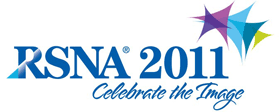
Abstract Archives of the RSNA, 2011
Anna C. Roquemore MD, Presenter: Nothing to Disclose
Beverly Emiko Hashimoto MD, Abstract Co-Author: Investigator, U-Systems, Inc
Medical Advisory Board, Koninklijke Philips Electronics NV
Medical Advisory Board, General Electric Company
Medical Advisory Board, Siemens AG
Consultant, Siemens AG
Consultant, Koninklijke Philips Electronics NV
Consultant, Advanced Imaging Technologies
Consultant, General Electric Company
Dawna J. Kramer MD, Abstract Co-Author: Investigator, U-Systems, Inc
Consultant, General Electric Company
Consultant, Vizyontech Imaging, Inc
To cross correlate ABUS lesions, detected during screening patients with heterogeneously or extremely dense breasts, with HHUS.
A group of 395 asymptomatic patients with heterogeneously or extremely dense breasts were recruited for a clinical research study on screening breast ultrasound as an adjunct to screening mammography using an Automated Breast Ultrasound system ( somo.v ABUS, U-Systems, Inc, Sunnyvale, CA) that produces high resolution 3D ultrasound images in multiple planes. Protocol required recall for any investigator-identified BIRADS 0 ABUS exam. Recalled patients then underwent a targeted HHUS of the BIRADS 0 ABUS lesions. A retrospective chart review was performed of these patients.
Of the 395 screened patients, 91 patients (23%) with 110 lesions were called back for targeted HHUS. 5 patients were excluded as they did not return to follow-up. Of the 110 ABUS lesions, HHUS showed that 44 (40%) ABUS abnormalities were negative (i.e. coopers ligament shadowing), 42 (38%) were cysts (simple, complex, sebaceous), 22 (20%) were solid masses, and 2 (2%) were duct ectasia. Biopsy was performed on 15/110 lesions (14%). 4 of 15 biopsied lesions (27%) were malignant (DCIS, IDC, and lobular carcinomas). 2 of the 4 malignancies detected on screening ABUS (DCIS and invasive lobular) were mammographically occult. The remainder of the biopsied lesions (11/15) were benign.
By cross correlating HUS findings with ABUS lesions, radiologists can improve their ABUS diagnostic skills which should lead to lower call back rates.
Educate radiologists about the appearance of ABUS lesions, show how ABUS findings cross correlate with HUS, and demonstrate ABUS malignant and benign characteristics using BI-RADS terminology.
Roquemore, A,
Hashimoto, B,
Kramer, D,
Screen Detected Automated Breast Ultrasound (ABUS) Lesions: Cross Correlation with Hand Held Ultrasound (HHUS). Radiological Society of North America 2011 Scientific Assembly and Annual Meeting, November 26 - December 2, 2011 ,Chicago IL.
http://archive.rsna.org/2011/11000250.html

